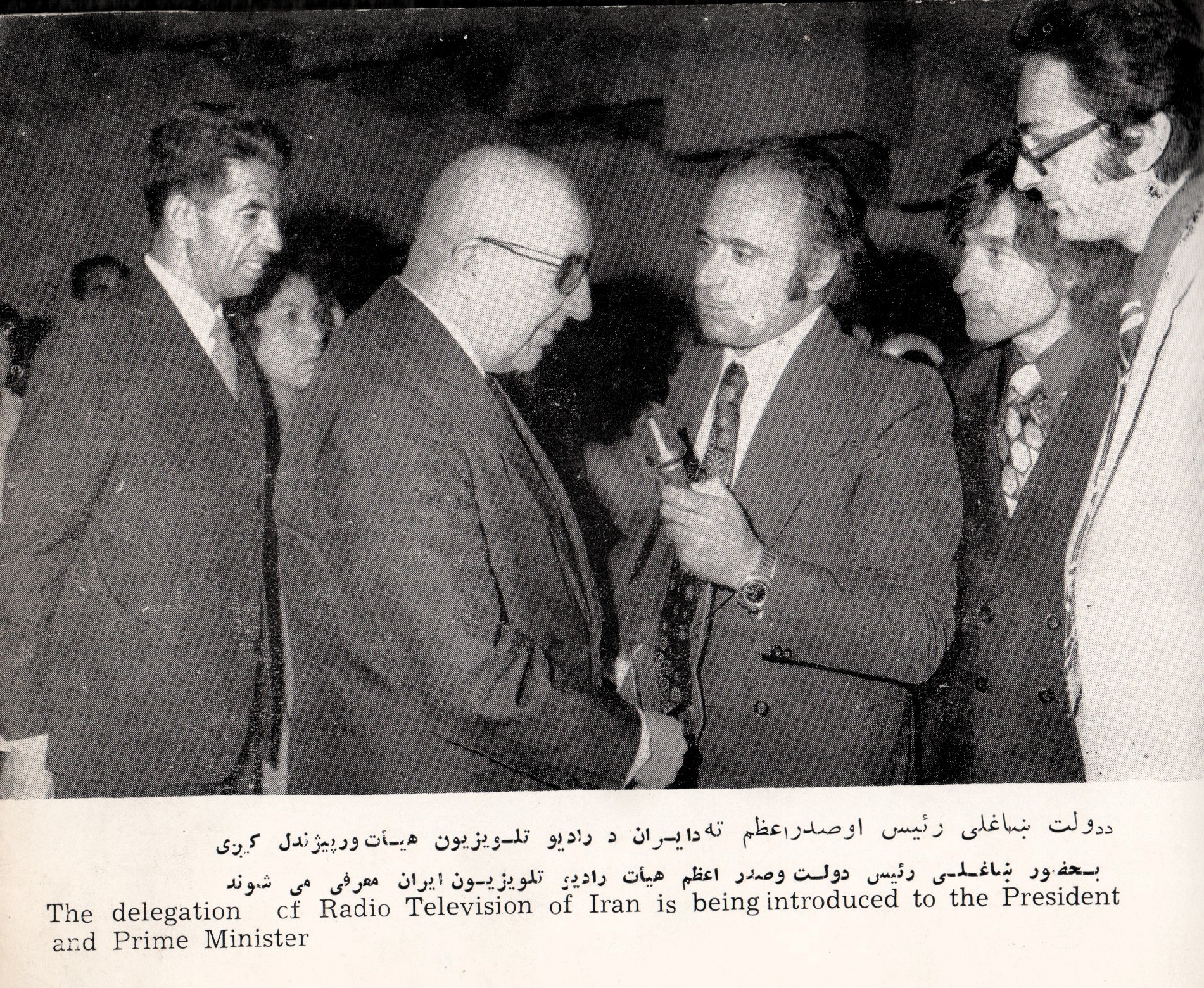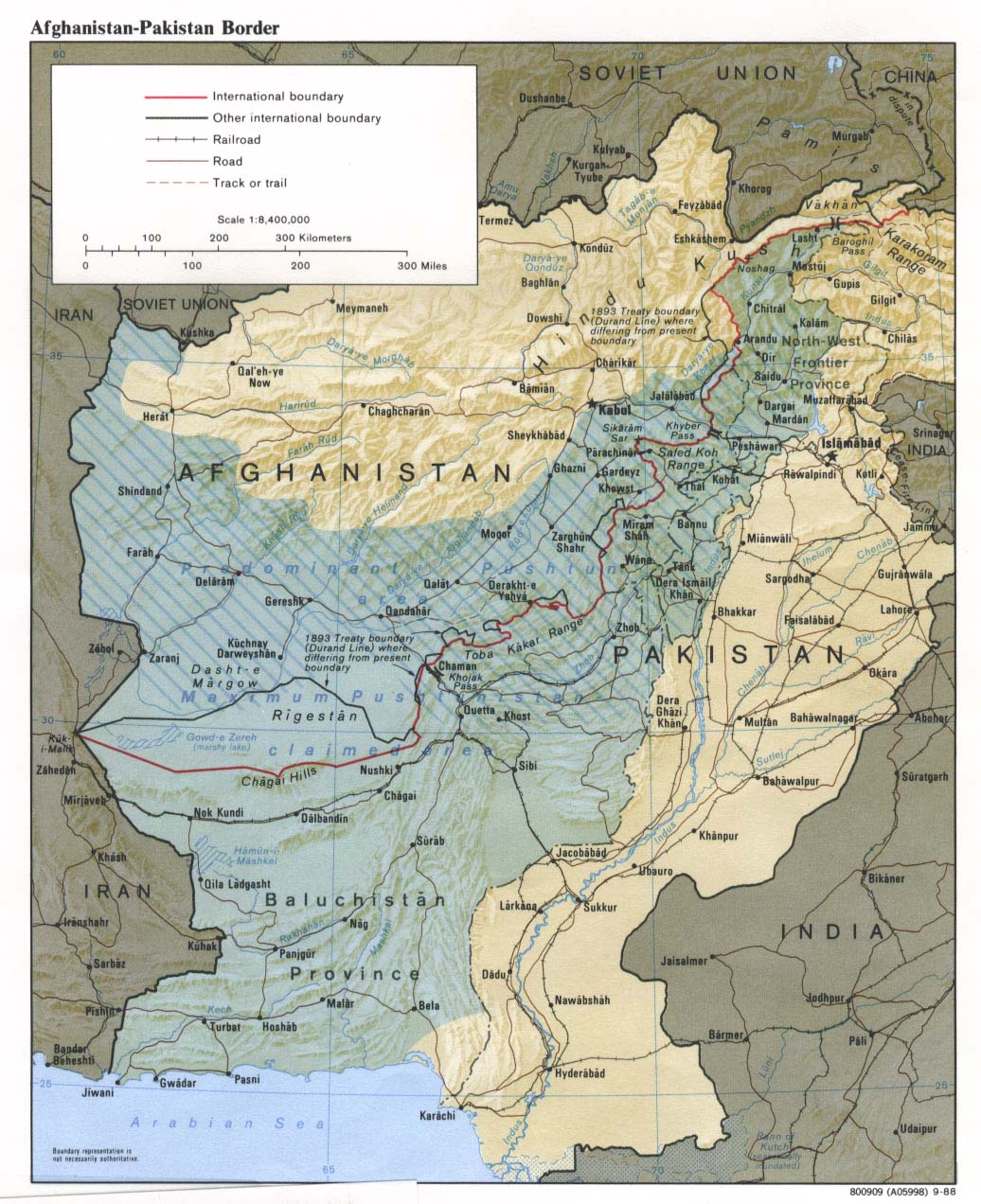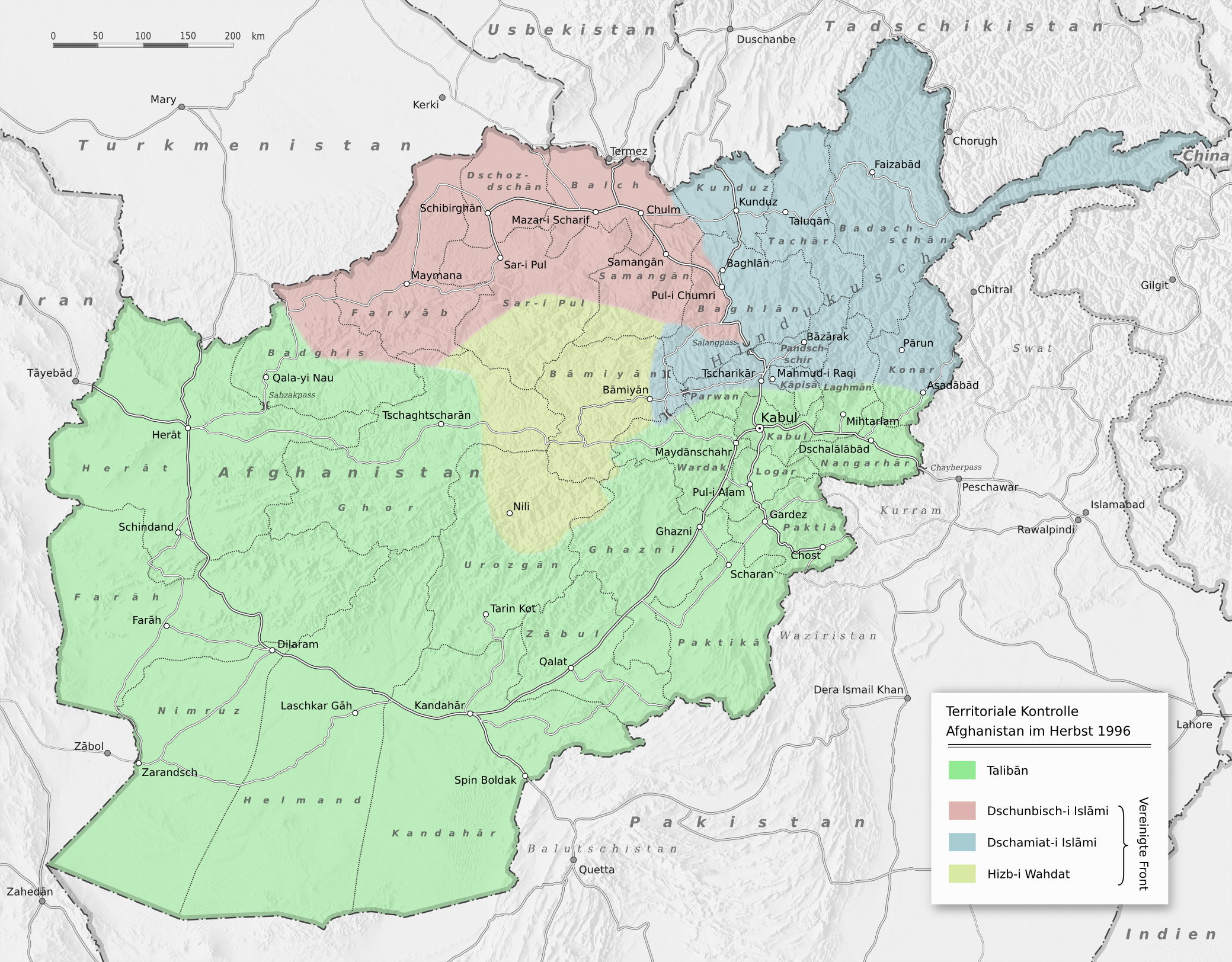|
Ghulam Farooq Wardak
Ghulam Farooq Wardak (born 1959) is a politician in Afghanistan, formerly serving as the Minister of Education. He was appointed to that position by Afghan President Hamid Karzai on October 11, 2008. Early life Farooq Wardak was born in the Saydabad Wardak District, in the Wardak Province of Afghanistan. He is an ethnic Pashtun from the Wardak tribe, who is fluent in Pashto, Persian, English and Urdu. His primary education was from a government elementary school in Wardak Province. He completed his high school in Kabul City. With the collapse of President Daud Khan's regime, Wardak joined the jihad against the Democratic Republic of Afghanistan with Hezb-e Islami of Gulbuddin Hekmatyar. Since the end of Taliban regime in late 2001, Farooq Wardak has continued to support Hezb-e Islami followers by appointing them at interesting administrative positions. Higher education After Soviet invasion of Afghanistan, Wardak stopped his studies in the faculty of Pharmacy of Kabul Univers ... [...More Info...] [...Related Items...] OR: [Wikipedia] [Google] [Baidu] |
Minister Of Education (Afghanistan)
{{Afghanistan-gov-stub ...
The Afghan Ministry of Education ( fa, وزارت معارف افغانستان , links=no)( ps, د پوهني وزارت افغانستان , links=no) is responsible for policy formulation, the organization and supervision of education in Afghanistan. Its headquarters is located in Kabul. The current Education Minister is Rangina Hamidi. The Ministry of Education provides a semi-annual report to inform the public of advancements in Afghanistan's education sector.http://moe.gov.af/en/page/1831/3031 Ministers References External links * Education Education in Afghanistan Afghanistan Afghanistan, officially the Islamic Emirate of Afghanistan,; prs, امارت اسلامی افغانستان is a landlocked country located at the crossroads of Central Asia and South Asia. Referred to as the Heart of Asia, it is bordere ... [...More Info...] [...Related Items...] OR: [Wikipedia] [Google] [Baidu] |
Mohammed Daoud Khan
Mohammed Daoud Khan ( ps, ), also romanized as Daud Khan or Dawood Khan (18 July 1909 – 28 April 1978), was an Afghan politician and general who served as prime minister of Afghanistan from 1953 to 1963 and, as leader of the 1973 Afghan coup d'état which overthrew the monarchy, served as the first president of Afghanistan from 1973 to 1978, establishing an autocratic one-party system. Born into the Afghan royal family and addressed by the prefix "Sardar", Khan started as a provincial governor and later a military commander before being appointed as Prime Minister by his cousin, King Mohammed Zahir Shah. Having failed to persuade the King to implement a one-party system, Khan overthrew the monarchy with the backing of Afghan Army officers, and proclaimed himself the first President of the Republic of Afghanistan. Khan was known for his autocratic rule, and for his educational and progressive social reforms. Under his regime, he headed a purge of communists in the governme ... [...More Info...] [...Related Items...] OR: [Wikipedia] [Google] [Baidu] |
Jigme Thinley
''Lyonpo'' Jigme Yoser Thinley (Dzongkha: འཇིགས་མེད་འོད་ཟེར་འཕྲིན་ལས་; Wylie:'' 'Jigs-med 'Od-zer 'Phrin-las'') (born 9 September 1952) is a Bhutanese politician who was Prime Minister of Bhutan from 20 July 1998 to 9 July 1999, 30 August 2003 to 18 August 2004 and 9 April 2008 to 28 April 2013. Biography Thinley was born in Bumthang and joined the civil service in 1976 upon receiving a graduate degree from The Pennsylvania State University. He received an undergraduate degree from St. Stephen’s College, Delhi. In February 1987, Thinley was awarded the title of ''Dasho'' and the Red Scarf, and in 1990, under the zonal system, he became administrator of the Eastern Zone. He then became secretary in the Ministry of Home Affairs in 1992 before being appointed as Deputy Minister of Home Affairs in January 1994, at which time he was also awarded the Orange Scarf. Later in 1994, he was appointed as Bhutan's Permanent Represent ... [...More Info...] [...Related Items...] OR: [Wikipedia] [Google] [Baidu] |
Baidyanath Misra
Baidyanath Misra (1920-2019) was an Indian economist, educationist, author, and administrator from the state of Odisha. He served as the Vice-Chancellor of the Odisha University of Agriculture and Technology, Deputy-Chairman of Odisha State Planning Board, Chairman of Odisha's First State Finance Commission, Secretary of Odisha State Welfare Board, founder Secretary and President of Orissa Economics Association, and the founder Director and Chairman of Nabakrushna Choudhury Centre for Development Studies. He wrote 16 books in English and 20 in Odia. He was also a columnist in several leading Odia journals and newspapers. He organised several camps across Odisha, for helping the cause of the poor and downtrodden. Education Misra received his Bachelor of Arts degree in economics from Ravenshaw University, followed by a Master of Arts degree from the University of Allahabad, and was the topper at both the institutions. He was also the first Odia topper of the Faculty of Arts and t ... [...More Info...] [...Related Items...] OR: [Wikipedia] [Google] [Baidu] |
KIIT University
Kalinga Institute of Industrial Technology (KIIT), formerly KIIT University, is a private deemed university located in Bhubaneswar, Odisha, India. It primarily emphasizes on higher education and research in engineering and science. It offers 34 undergraduate, 32 postgraduate, 10 integrated, 11 Ph.D and 7 postdoctoral research programmes in the fields of science and engineering, medical science, management, law, film and media, humanities and yoga and sports. The admissions for B.Tech. programmes are purely based on merit as per the results in KIITEE exam. It was founded in 1992 as Industrial Training Institute in Bhubaneswar with a seed revenue of ₹5000 (US$66.8). In 2017 it was renamed back as Kalinga Institute of Industrial Technology following the UGC request to drop "University" from the name for all the institutes granted the status of 'Deemed to be Universities'. It is part of KIIT Society which is estimated to be worth ₹10,000 Crores (US$1.3 billion) as of 2020. I ... [...More Info...] [...Related Items...] OR: [Wikipedia] [Google] [Baidu] |
Peshawar
Peshawar (; ps, پېښور ; hnd, ; ; ur, ) is the sixth most populous city in Pakistan, with a population of over 2.3 million. It is situated in the north-west of the country, close to the International border with Afghanistan. It is the capital of the province of Khyber Pakhtunkhwa, where it is the largest city. Peshawar is primarily populated by Pashtuns, who comprise the second-largest ethnic group in the country. Situated in the Valley of Peshawar, a broad area situated east of the historic Khyber Pass, Peshawar's recorded history dates back to at least 539 BCE, making it one of the oldest cities in South Asia. Peshawer is among the oldest continuously inhabited cities of the country. The area encompassing modern-day Peshawar is mentioned in Vedic scriptures; it served as the capital of the Kushan Empire during the rule of Kanishka and was home to the Kanishka Stupa, which was among the tallest buildings in the ancient world. Peshawar was then ruled by the Hephtha ... [...More Info...] [...Related Items...] OR: [Wikipedia] [Google] [Baidu] |
University Of The Punjab
The University of the Punjab (Urdu, pnb, ), also referred to as Punjab University, is a public, research, coeducational higher education institution located in Lahore, Pakistan. Punjab University is the oldest public university in Pakistan. With multiple campuses in Gujranwala, Jhelum, and Khanspur, the university was formally established by the British Government after convening the first meeting for establishing higher education institutions in October 1882 at Simla. Punjab University was the fourth university to be established by the British colonial authorities in the subcontinent; the first three universities were established in other parts of British-ruled Subcontinent. There are 45,678 students (27,907 morning students, 16,552 evening students and 1,219 diploma students). The university has 13 faculties of which there are 83 academic departments, research centres, and institutes. Punjab University has ranked first among large-sized multiple faculty universities by th ... [...More Info...] [...Related Items...] OR: [Wikipedia] [Google] [Baidu] |
Faculty Of Pharmacy functions
{{disam ...
Faculty may refer to: * Faculty (academic staff), the academic staff of a university (North American usage) * Faculty (division), a division within a university (usage outside of the United States) * Faculty (instrument), an instrument or warrant in canon law, especially a judicial or quasi-judicial warrant from an ecclesiastical court or tribunal * Faculty (company), a British artificial intelligence company * Aspects of intelligence ("cognitive faculties") * Senses of sight, hearing, touch, etc. ("perceptive faculties") * ''The Faculty'', a 1998 horror/sci-fi movie by Robert Rodriguez * ''The Faculty'' (TV series), a 1996 American sitcom * The rights of a priest to celebrate or perform various liturgical Liturgy is the customary public ritual of worship performed by a religious group. ''Liturgy'' can also be used to refer specifically to public worship by Christians. As a religious phenomenon, liturgy represents a communal response to and partic ... [...More Info...] [...Related Items...] OR: [Wikipedia] [Google] [Baidu] |
Afghans In Pakistan
Afghans in Pakistan ( ur, , , ) are temporary residents from Afghanistan who are registered in Pakistan as refugees and asylum seekers. They fall under the jurisdiction of the United Nations High Commissioner for Refugees (UNHCR). Most of them were born and raised in Pakistan during the last four decades. Additionally, there are also Special Immigrant Visa applicants awaiting to immmigrate to the United States. Many Afghans in Pakistan receive financial support from family members in the Afghan diaspora. The Pakistani government began admitting Afghans after the beginning of the Soviet–Afghan War in 1979; by the end of 2001, there were over four million of them on the Pakistani side of the Durand Line. About 75% of them have returned to their native country of Afghanistan since 2002. , approximately 1,285,754 still remain in Pakistan. In descending order, the distribution of the total Afghan refugee population throughout each Pakistani province and territory is as follows: Khy ... [...More Info...] [...Related Items...] OR: [Wikipedia] [Google] [Baidu] |
Pakistan
Pakistan ( ur, ), officially the Islamic Republic of Pakistan ( ur, , label=none), is a country in South Asia. It is the world's List of countries and dependencies by population, fifth-most populous country, with a population of almost 243 million people, and has the world's Islam by country#Countries, second-largest Muslim population just behind Indonesia. Pakistan is the List of countries and dependencies by area, 33rd-largest country in the world by area and 2nd largest in South Asia, spanning . It has a coastline along the Arabian Sea and Gulf of Oman in the south, and is bordered by India to India–Pakistan border, the east, Afghanistan to Durand Line, the west, Iran to Iran–Pakistan border, the southwest, and China to China–Pakistan border, the northeast. It is separated narrowly from Tajikistan by Afghanistan's Wakhan Corridor in the north, and also shares a maritime border with Oman. Islamabad is the nation's capital, while Karachi is its largest city and fina ... [...More Info...] [...Related Items...] OR: [Wikipedia] [Google] [Baidu] |
Islamic Emirate Of Afghanistan (1996–2001)
The Islamic Emirate of Afghanistan ( ps, د افغانستان اسلامي امارت, '), also referred to as the First Islamic Emirate of Afghanistan, was an Islamic state established in September 1996, when the Taliban began their governance of Afghanistan after the Battle of Kabul (1992–1996)#1996, fall of Kabul. At its peak, the Taliban government controlled approximately 90% of the country, while remaining regions in the northeast were held by the Northern Alliance, which maintained broad Diplomatic recognition, international recognition as a continuation of the Islamic State of Afghanistan. After the September 11 attacks and subsequent declaration of a "War on terror, War on Terror" by the United States, international opposition to the regime drastically increased, with diplomatic recognition from the United Arab Emirates and Pakistan being rescinded. The Islamic Emirate ceased to exist on 7 December 2001 after being Fall of Kandahar, overthrown by the Northern Al ... [...More Info...] [...Related Items...] OR: [Wikipedia] [Google] [Baidu] |


_Baidyanath_Misra_Memorial.jpg)




